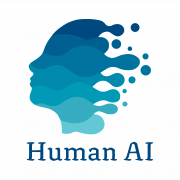AI & IB: Assessing Key Competencies
The IB’s mission, centered on the holistic development of students, seeks not only academic success but also the formation of global citizens equipped with critical and socio-emotional skills—empowering them to become agents of change. In this context, Human AI’s artificial intelligence is a strategic ally for IB schools, offering an innovative tool to assess and develop the socio-emotional skills (SES) essential to achieving the core attributes of the IB Learner Profile. This evaluation is conducted using students’ natural language texts of at least 800 words—no traditional tests or questionnaires required—eliminating self-perception bias in the process.
A Holistic AI Approach: Competencies and IB Attributes
The IB defines ten key attributes that describe learners as inquirers, knowledgeable, thinkers, communicators, principled, open-minded, caring, risk-takers, balanced, and reflective. These form the foundation of holistic learning and align closely with socio-emotional competencies.
Human AI has developed a tool that translates these attributes into measurable competencies—such as intellectual curiosity (inquirer), collaboration (communicator), and emotional regulation (risk-taker). This approach not only complements traditional academic assessment but also provides teachers and school leaders with a more comprehensive view of student growth.
Research from the University of Oxford’s Wellbeing Research Centre, in collaboration with the IB, reinforces the importance of student well-being for both academic and personal development. Recent studies show that a comprehensive approach to well-being in schools enhances motivation, engagement, academic achievement, and socio-emotional skills.
Evidence and Impact of Well-Being in IB Education
The Wellbeing in Schools in Childhood and Adolescence study by the University of Oxford highlights the relationship between student well-being and academic achievement across diverse educational contexts. Key findings include:

- Well-being has a direct impact on academic performance, with effects observed in countries such as the United Kingdom, China, Chile, Australia, France, Germany, Bhutan, Mexico, and Peru.
- Whole-school approaches to well-being improve both academic and socio-emotional outcomes, including mental health, self-esteem, motivation, and reduced dropout rates.
- Effective strategies involve the participation of teachers, families, and the broader school community, along with the development of self-regulated learning skills.
The Wellbeing Impact Study further supports these findings, showing that school well-being initiatives have a direct impact not only on academic performance but also on student motivation and personal development.
These findings reinforce the role of tools like Human AI, which not only assess but actively promote more personalized and equitable education grounded in student well-being.
Human AI’s Contribution: Innovation in Assessment
Thanks to artificial intelligence (AI) and natural language processing, Human AI offers precise and objective assessments of competencies such as critical reflection, empathy, and emotional balance. This system is designed to align with the IB framework, supporting schools in:
- Identifying each student’s strengths and areas for improvement.
- Personalizing learning to meet the unique needs of every learner.
- Fostering a culture of continuous feedback—an essential element of the IB’s pedagogical model. en el modelo pedagógico del IB.
By integrating Human AI, educators gain practical tools to translate the IB’s ideals into measurable outcomes, helping students reach their full potential.
Benefits of AI for IB Schools and Their Students
- Personalized Learning – SES assessment helps teachers design instructional strategies tailored to each student’s profile.
- Holistic Development – Students not only succeed academically but also build essential skills for their personal and professional lives.
- Support for Educators – Human AI reports provide valuable insights to enhance teaching practice, including student-level data and actionable guidelines for developing socio-emotional competencies.
- Future Readiness – The competencies evaluated are highly valued in global contexts—from higher education to the job market.
Toward a More Human and Technological Education
The International Baccalaureate (IB) stands out for its commitment to innovative and transformative education. In this context, collaborating with Human AI’s artificial intelligence represents a significant step forward in integrating technologies that not only assess, but also promote more human-centered learning.
By adopting advanced tools like Human AI, IB schools can strengthen their holistic approach and ensure that their students are prepared to lead with empathy, reflection, and creativity in the 21st century.
Discover how Human AI can transform your IB programme and request your demo here.







